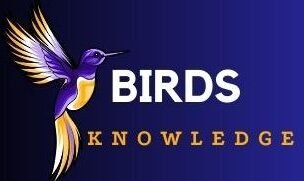Sword-billed hummingbirds insert their peculiar beaks into horn-shaped flowers to suck up insects and nectar.
About 320 species of hummingbirds live in North, Central, and South America. Among all Hummingbirds species, the largest hummingbirds are about 20 cm long and weigh approximately 20 grams .

A hummingbird hovers in front of a flower to collect nectar with its brass-like tip.
Hummingbirds are the only birds in the world to fly backward while collecting nectar.
A hummingbird must eat at least half its weight in food each day for energy.
Hummingbirds are so active that their hearts beat more than 1,200 times per minute.

Honeycomb hummingbirds are no larger than bumblebees. At just 6 cm long, they are probably the smallest birds. Hummingbirds flap their wings 80 times per second while hovering.
The 10.5 cm-long sword-billed hummingbird has a beak longer than the rest of its body.

The female calliope hummingbird lays two small eggs in a nest made of algae, fungi, and cobwebs. She incubates the eggs for 15 days and feeds the chicks for 20 days until they can fly and forage for themselves.

Male ruby-throated hummingbirds oscillate back and forth in semicircles while chirping during mating displays. Female birds may participate in this display.
The tiny ruby-throated hummingbird migrates from the U.S. to Central America across the Valley of Mexico each fall. Despite being only 9 cm long, this bird can fly at a speed of 44 km per hour.
